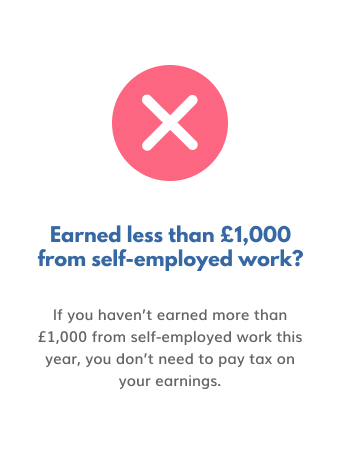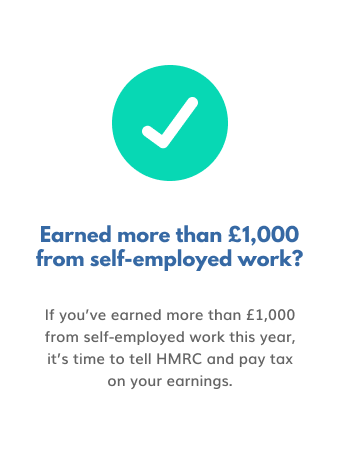

How Do I Become a Freelancer?
Being a freelancer means you get to be your own boss, deciding when, where, and how you work. It gives you the flexibility to choose projects that you’re really interested in and that match your skills. Plus, you can often set your own rates, potentially earning more than you would in a traditional job. You even set up a freelance side-hustle alongside your regular job!
Being a freelancer also comes with certain responsibilities and involves a few key steps in getting things right. Not sure where to start? Here’s a quick guide to help.
Choose your freelance skill set
Identify your skills and strengths. Freelancers often offer services like writing, graphic design, programming, marketing, etc. Pick something you enjoy and are really good at.
Assess your need for an online presence
Having an online platform can sometimes be useful for a freelancer, giving you somewhere to host your portfolio or to find new clients. Depending on the freelance services you offer, this might take the form of a profile on one of the popular freelance platforms like Upwork or People Per Hour, or a website to showcase your portfolio, providing potential clients with a comprehensive view of what you offer.
Engaging in relevant online communities and social media platforms can be a way to network with potential clients and other freelancers. Don’t forget to regularly update your profiles and website to reflect your latest work and skills too. This can really help to demonstrate your reliability and commitment.
Register as self-employed
When you work for an employer, they will usually submit your tax, National Insurance, and other deductions to HM Revenue & Customs (HMRC) on your behalf every time you get paid. This is done through Pay As You Earn (PAYE).
Being a freelancer means that you’re classed as self-employed, even if you’re doing it alongside an employed job. This means you need to sort out your own payments to HMRC instead using Self Assessment, which is the system for reporting your income and expenses.
The good news is that freelancers can use the trading allowance to earn up to £1,000 from self-employment during a tax year without needing to report it to HMRC or pay tax on it!
Just make sure you keep good records of all your freelance earnings – especially now that digital platforms must report data to HMRC about what their users earn through the site.


If you do cross the £1,000 threshold, then you’ll need to tell HMRC. Start by visiting the HMRC website and create a Government Gateway account if you don’t already have one. Once registered, you can sign up for Self Assessment.
Understand what tax and National Insurance you need to pay
A freelancer’s tax obligations typically include income tax and National Insurance contributions (NICs). Income tax is calculated based on your total earnings, taking into account any allowable business expenses.
National Insurance for self-employed people tends to consist of Class 2 and Class 4 contributions, with Class 2 being a flat weekly rate if your profits exceed a certain threshold, and Class 4 being a percentage of your profits.
You will need to pay your tax and NI through Self Assessment, and possibly other deductions that might apply, like student loan repayments. Keep detailed records of your earnings and business expenses, as you’ll need this information to complete your tax return.
It’s also advisable to set aside money for your tax bill, so you don’t get a nasty shock when it’s time to pay. They key is to stay organised, and get professional advice if needed!
Set your rates
Working out what to charge clients for your services can be nerve-wracking! Start by researching what other freelancers in your field are charging and factor in your skills, costs, and experience. Being careful to pitch it right, without over-charging or under-charging, can be a delicate balance at times, so don’t be afraid to negotiate with customers.
Market yourself
To market yourself effectively as a freelancer, decide on a marketing plan to help you craft a compelling personal brand that highlights your unique skills and passion for your work. What sets you apart from the competition?
It’s also a good idea to use social media platforms to share your expertise, engage with your audience, and network with potential clients.
Actively seek out opportunities, be responsive and professional in your communication, and stay updated on industry trends to show that you’re an expert in your field. You may also find it useful to showcase your work on social media and on other online communities to gain recognition.
Create contracts and invoices
When you get a new client, always have a clear contract outlining the scope of work, payment terms, and deadlines. This helps protect both you and them.
When creating your invoice, be sure to include essential details such as your full name or business name, contact information, and the client’s details. Clearly show the invoice date and due date for payment and provide a unique invoice number for reference.
Finally, make sure you itemise your services with a description, quantity, and rate for each task you’ve completed, calculating the total amount owed. Specify the payment terms and methods accepted and include your preferred payment details.
Maintain thorough up-to-date records (of everything!)
We can’t emphasise this enough! Keep track of your income, expenses, and deadlines. Good bookkeeping will be an enormous help when it comes to managing payments and sorting out your tax return.
Find out more about our online accounting services for freelancers, startups, and small businesses. Talk to one of the team on 020 3355 4047, or get an instant online quote.
Want to learn more?
Subscribe to our newsletter to get accounting tips like this right to your inbox

Read more posts...

The Self-Employed Guide to Retirement Planning
19th April 2024Pension planning is often something we forget about until later in life, but the earlier you think about it, the better. Everyone…
Read More
The Accountancy Partnership – Our Positive Reviews
15th April 2024Here at The Accountancy Partnership, we’re proud of our customer reviews The reviews we receive from our customers show how hard we…
Read More
Your Introductory Guide to Shared Parental Leave and Pay
14th April 2024Shared Parental Leave (SPL) was created to give more flexibility to parents during the first year following their child’s birth or adoption….
Read MoreConfirm Transactions
The number of monthly transactions you have entered based on your turnover seem high. A transaction is one bookkeeping entry such as a sale, purchase, payment or receipt. Are you sure this is correct?
Please contact our sales team if you’re unsure
VAT Returns
It is unlikely you will need this service, unless you are voluntarily registered for VAT.
Are you sure this is correct?
Call us on 020 3355 4047 if you’re not sure.
Bookkeeping
You will receive our bookkeeping software Pandle for free, as part of your package.
You can use this to complete your own bookkeeping, or we can provide a quote to complete your bookkeeping for you.
Please select and option below:
Call us on 020 3355 4047 if you’re not sure.

